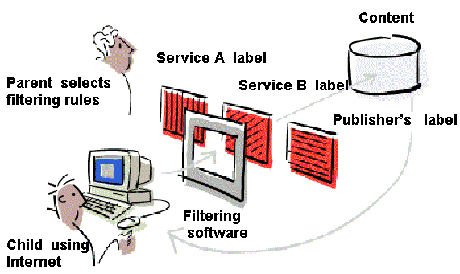Facebook, Twitter, YouTube, Microsoft back EU hate speech rules by Julia Fioretti and Foo Yun Chee.
From the post:
Facebook (FB.O), Twitter (TWTR.N), Google’s (GOOGL.O) YouTube and Microsoft (MSFT.O) on Tuesday agreed to an EU code of conduct to tackle online hate speech within 24 hours in Europe.
EU governments have been trying in recent months to get social platforms to crack down on rising online racism following the refugee crisis and terror attacks, with some even threatening action against the companies.
As part of the pledge agreed with the European Commission, the web giants will review the majority of valid requests for removal of illegal hate speech in less than 24 hours and remove or disable access to the content if necessary.
They will also strengthen their cooperation with civil society organizations who help flag hateful content when it goes online and promote “counter-narratives” to hate speech.
…
(original story dated 31 May 2016)
Reading the four horsemen of internet censorship, Facebook, Twitter, YouTube and Microsoft had joined with the EU to further censorship of the internet, I did try for due diligence.
I was able to find the original press release: European Commission and IT Companies announce Code of Conduct on illegal online hate speech
Along with the CODE OF CONDUCT ON COUNTERING ILLEGAL HATE SPEECH ONLINE, to take away some of the hand-waving about what is to be censored.
Not to mention the Framework Decision on combating certain forms and expressions of racism and xenophobia by means of criminal law.
None of the co-conspirators in this league of censors seems to recall there are alternatives to affirmative censorship by the four horsemen of internet censorship plus the EU.
Consider this image from 1999 (assuming 3 months = 1 internet year, that’s 68 years ago in internet time):
That image appeared in Paul Resnick’s PICS, Censorship, & Intellectual Freedom FAQ. For a variety of reasons, PICS failed, but the principle of filtering by the user, remains sound.
The major obstacle to PICS was the lack of labeling of content by content providers, who quite naturally don’t want any obstruction to the content they seek to deliver.
It’s reasonable to assume that would be the same today. Except that we don’t need to rely on content providers to label content in order to filter it.
You may have heard about the rapid advances in neural networks and deep learning. I suspect the four horsemen of internet censorship have but haven’t considered their use for user-side filtering of content.
Perhaps I’m deeply offended by some variation on “hate speech” (a euphemism for “speech I don’t like”) plus insults about Erdogan.
I rather doubt, at least at present, the four horsemen of internet censorship are going to protect me from the combination.
Or conjure up your own combination of speech from which you desire protection.
The sensible alternative to censorship is to empower users, not the four horsemen, not the EU nor anyone else, to filter their own content.
Let’s keep free speech and empower users, not the four horsemen of internet censorship in their bid to curry favor with the EU.
PS: The EU is always attempting to grow a cottage IT industry, creating adaptive deep learning censors for users is an open market for users who fear content.
